
International Journal of Education and the Arts
Scope & Guideline
Bridging Creativity and Knowledge.
Introduction
Aims and Scopes
- Interdisciplinary Approaches to Arts Education:
The journal promotes research that explores the integration of arts education with various disciplines, highlighting how collaborative and transdisciplinary methods can enhance learning outcomes. - Social and Emotional Aspects of Arts Learning:
A significant focus is placed on the social and emotional dimensions of arts education, investigating how creative practices can foster well-being, resilience, and community among learners. - Innovative Pedagogical Practices:
The journal encourages studies that examine new and experimental teaching methods in the arts, including the use of technology, participatory practices, and culturally responsive pedagogy. - Research on Arts and Identity:
The exploration of how arts education influences identity formation, cultural engagement, and social justice is a core aim, addressing issues of equity, diversity, and inclusion. - Evaluation and Assessment in Arts Education:
The journal also addresses methodological considerations and frameworks for evaluating arts education programs, emphasizing the need for robust assessment tools to measure impact and effectiveness.
Trending and Emerging
- Transformative Learning through the Arts:
There is a growing interest in how the arts can facilitate transformative learning experiences, particularly in addressing social issues and fostering critical thinking among students. - Collaborative and Participatory Learning Models:
Research increasingly emphasizes collaborative and participatory approaches, where students engage actively in the learning process through co-creation and shared experiences in arts education. - Integration of Technology in Arts Education:
The incorporation of digital tools and platforms in arts education is trending, as educators explore innovative ways to enhance engagement and creativity through technology. - Focus on Well-being and Mental Health:
A significant trend is the exploration of arts education's role in promoting mental health and well-being, particularly in the context of challenges posed by the COVID-19 pandemic. - Culturally Responsive and Inclusive Practices:
There is a marked increase in research addressing culturally responsive pedagogy and the importance of inclusivity in arts education, reflecting a broader societal push towards equity and representation.
Declining or Waning
- Traditional Arts Disciplines:
Research focusing strictly on traditional forms of art education, such as classical music or visual arts without interdisciplinary connections, appears to be waning as pedagogy increasingly embraces cross-disciplinary approaches. - Static Curriculum Models:
There is a noticeable decline in studies advocating for fixed or static curriculum models in arts education, as the trend shifts towards more dynamic and flexible educational frameworks that accommodate diverse learner needs. - Individualistic Approaches to Art Practice:
The emphasis on individual artistic expression without regard for collaborative or community-oriented practices is decreasing, aligning with a broader recognition of the importance of social engagement in the arts. - Historical Perspectives on Arts Education:
Research centered on historical analyses of arts education practices is becoming less frequent, with a shift towards contemporary issues and current pedagogical challenges in the field.
Similar Journals
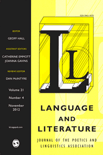
Language and Literature
Cultivating Scholarly Exploration in Language and LiteratureLanguage and Literature is a premier academic journal published by SAGE Publications Ltd, focusing on the dynamic interplay between linguistics, literature, and literary theory. Established in 1996, this prestigious journal holds a distinguished position within the academic community, reflected in its Q1 ranking in both Linguistics and Literature & Literary Theory as of 2023, placing it among the top journals in its field. With a robust impact demonstrated by its high Scopus rankings—ranked #24 out of 1106 in Literature and Literary Theory and #219 out of 1088 in Language and Linguistics—Language and Literature provides a vital platform for innovative research and discourse, particularly relevant for scholars and practitioners aiming to explore cutting-edge developments in language studies and literature. While the journal does not currently offer Open Access options, its comprehensive and scholarly publications continue to contribute significantly to the advancement of knowledge and understanding in these interdisciplinary fields. We invite researchers, professionals, and students to engage with our content and contribute to the vibrant dialogue that shapes our understanding of language and literature.

Cultural Studies of Science Education
Innovating Science Education with Cultural Contexts in MindCultural Studies of Science Education, published by Springer, is a leading journal in the field of cultural studies, with a specific focus on the intersection of science education and cultural analysis. With an ISSN of 1871-1502 and an E-ISSN of 1871-1510, this journal has demonstrated its commitment to high-quality research, evidenced by its impressive Q1 ranking in 2023 within the Cultural Studies category and a notable position in the 93rd percentile in Scopus Ranks for Social Sciences. Covering a wide array of interdisciplinary topics, the journal seeks to advance the understanding of how scientific knowledge and education are shaped by cultural contexts, making it a vital resource for researchers, educators, and policy makers. Operating from the Netherlands, the journal embraces an open access philosophy to ensure that cutting-edge research is accessible to all, fostering collaboration and innovation in the field. As we converge years from 2006 to 2024, Cultural Studies of Science Education continues to explore critical issues and innovative methodologies, aiming to inspire and inform the next generation of scholars and practitioners.

TEACHING AND TEACHER EDUCATION
Cultivating Excellence in Teacher EducationTEACHING AND TEACHER EDUCATION is an esteemed academic journal dedicated to advancing the fields of education and teacher training. Published by Pergamon-Elsevier Science Ltd, this journal has garnered substantial recognition, holding a prestigious Q1 category in Education as of 2023, and ranking #160 out of 1543 in Scopus's Social Sciences Education category, placing it in the top 89th percentile. Since its inception in 1985, the journal has been pivotal in disseminating cutting-edge research, theoretical developments, and practical applications for educators and policy-makers. The journal's scope encompasses a wide array of topics, including but not limited to pedagogical practices, teacher education curriculum, and innovative teaching methodologies. While it does not operate under an open access model, it remains influential by providing a critical platform for rigorous scholarship that impacts teaching practices globally. Located in the United Kingdom, TEACHING AND TEACHER EDUCATION is a vital resource for researchers, professionals, and students who are dedicated to shaping the future of education.

He Kupu
Advancing educational excellence in Aotearoa.He Kupu is a prominent academic journal published by the New Zealand Tertiary College, focused on advancing the field of educational research and discourse in Aotearoa New Zealand. With the ISSN 1179-6812, this journal provides a vital platform for scholars, educators, and practitioners to engage with contemporary issues, practice innovations, and collaborative research findings that shape tertiary education and beyond. Although currently not listed as an open access journal, He Kupu plays a critical role in promoting indigenous perspectives and enhancing educational practices through its diverse range of articles, essays, and reviews. As a valuable resource for researchers and students alike, He Kupu contributes significantly to the ongoing discourse in higher education, making it an essential read for those committed to fostering educational excellence and cultural competence in New Zealand.
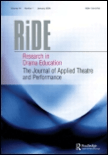
RIDE-The Journal of Applied Theatre and Performance
Cultivating a Rich Dialogue on Performance PracticesRIDE - The Journal of Applied Theatre and Performance is an esteemed academic publication dedicated to exploring the multifaceted relationships between theatre, performance, and applied practices. Published by Routledge Journals, Taylor & Francis Ltd, this journal serves as a vital resource for scholars, practitioners, and students in the fields of education, literature, and the visual and performing arts. With a commendable 2023 Impact Factor indicating its significance in the arts and humanities, RIDE ranks in the top quartiles (Q1 and Q3) across various categories, including Literature and Literary Theory, and Visual Arts and Performing Arts. This rigorous journal encompasses a broad range of topics such as transformative learning through performance, the role of theatre in social change, and innovative pedagogical strategies. While not open access, RIDE provides valuable insights and research that are crucial for advancing the understanding and practice of applied theatre and performance. With its extensive scope and compelling content, RIDE stands as a cornerstone for those interested in the dynamic intersections of art, education, and society, continuing to publish impactful research from 2010 to 2024 and beyond.
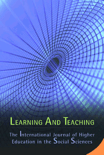
Learning and Teaching-The International Journal of Higher Education in the Social Sciences
Cultivating a Community of Scholars and EducatorsLearning and Teaching: The International Journal of Higher Education in the Social Sciences, published by BERGHAHN JOURNALS, stands at the forefront of interdisciplinary scholarship dedicated to enhancing the pedagogical landscape within the social sciences. With its Open Access model established in 2020, this journal provides a vital platform for disseminating innovative research and best practices that contribute to the evolving dynamics of higher education. Operating from the United States, and noted for its relevance in Developmental and Educational Psychology, Education, and Sociology and Political Science, Learning and Teaching has achieved commendable rankings, positing it in the Q3 and Q2 quartiles in several categories as of 2023. This recognition underscores its importance as a resource for researchers, educators, and students alike, fostering a robust dialogue about teaching strategies, learning environments, and educational theories. By converging research and practice from 2017 to 2024, Learning and Teaching is poised to influence the future of education, preparing scholarly contributors to address the complexities of learning in the social sciences effectively.
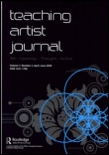
Teaching Artist Journal
Exploring the Intersection of Arts and EducationTeaching Artist Journal is a leading publication dedicated to the interdisciplinary exploration of the role of teaching artists within the arts and education sectors. Published by Routledge Journals, Taylor & Francis Ltd, this journal serves as a platform for innovative research and best practices that highlight the impact of teaching artists on diverse educational contexts and their contributions to community engagement through the arts. With an ISSN of 1541-1796 and an E-ISSN of 1541-180X, the journal operates from its base in the United States, aiming to foster discourse that bridges theory and practice. Although it currently holds a Q4 ranking in both the Arts and Humanities (Miscellaneous) and Education categories for 2023, it continues to be a significant resource for educators, policymakers, and practitioners interested in the evolving landscape of teaching artistry. The journal is published non-open access, providing rigorously peer-reviewed articles that contribute to the academic field while addressing real-world applications in teaching artistry. Researchers and students alike will find a wealth of information and inspiration within its pages, which reflect the journal's commitment to enhancing educational practices through the arts.
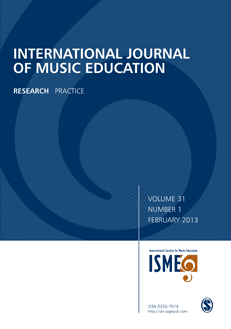
International Journal of Music Education
Championing research that resonates in classrooms worldwide.The International Journal of Music Education is a premier academic platform published by SAGE Publications Ltd, dedicated to exploring the interdisciplinary intersections of music and education. With its ISSN 0255-7614 and E-ISSN 1744-795X, this esteemed journal has been contributing significantly to the field since 1996 and will continue to do so through 2024, underscoring its commitment to advancing scholarly discourse in music pedagogy. It boasts impressive ranking metrics, including Q1 status in Music and Q2 in Education as of 2023, reflecting its influence within these domains. Ranked #10 out of 180 in Music (94th percentile) and #501 out of 1543 in Education (67th percentile) by Scopus, the journal is acknowledged for its rigorous peer-reviewed articles that address contemporary issues, innovative teaching strategies, and the role of music in learning environments. Although it does not offer open access, researchers, professionals, and students are encouraged to engage with its comprehensive research findings, ensuring the advancement of both music education and the broader arts landscape.
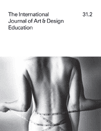
INTERNATIONAL JOURNAL OF ART & DESIGN EDUCATION
Innovating Education Through Art and DesignThe INTERNATIONAL JOURNAL OF ART & DESIGN EDUCATION, published by Wiley, is a premier peer-reviewed journal that explores the intersection of art, design, and educational practice. With an ISSN of 1476-8062 and an E-ISSN of 1476-8070, this journal stands out as a beacon of scholarly discourse in the arts and humanities. Recognized for its excellence, it has achieved a remarkable trajectory, earning a Q1 ranking in both the Visual Arts and Performing Arts categories and a Q1 in Arts and Humanities (miscellaneous) for 2023, as evidenced by its Scopus rankings, where it places in the top 5% of relevant journals. The journal invites submissions that foster innovative research and discussions on contemporary issues in art and design education, thus serving as an essential resource for researchers, educators, and practitioners alike. With an emphasis on accessibility, the journal offers an Open Access option, ensuring its invaluable contributions reach a wider audience. Established in 1996 and converging towards 2024, the INTERNATIONAL JOURNAL OF ART & DESIGN EDUCATION continues to shape the future of art and design pedagogy in the United Kingdom and beyond.
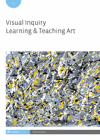
Visual Inquiry-Learning & Teaching Art
Innovating the Future of Art Teaching and LearningVisual Inquiry: Learning & Teaching Art is a premier journal published by Intellect Ltd, dedicated to exploring innovative methods and practices in art education. With its ISSN 2045-5879 and E-ISSN 2045-5887, the journal provides a vital platform for researchers, educators, and practitioners to share their findings and insights into the pedagogy of visual arts. Although currently not open access, its influence in the field of art education is underscored by the quality of contributions from both established and emerging scholars. As the dialogue surrounding visual literacy and creative methodologies evolves, this journal remains essential for those invested in improving teaching strategies and fostering artistic expression. Its commitment to advancing knowledge in art education makes it a critical resource for anyone looking to enhance their understanding of how art can effectively be taught and learned.